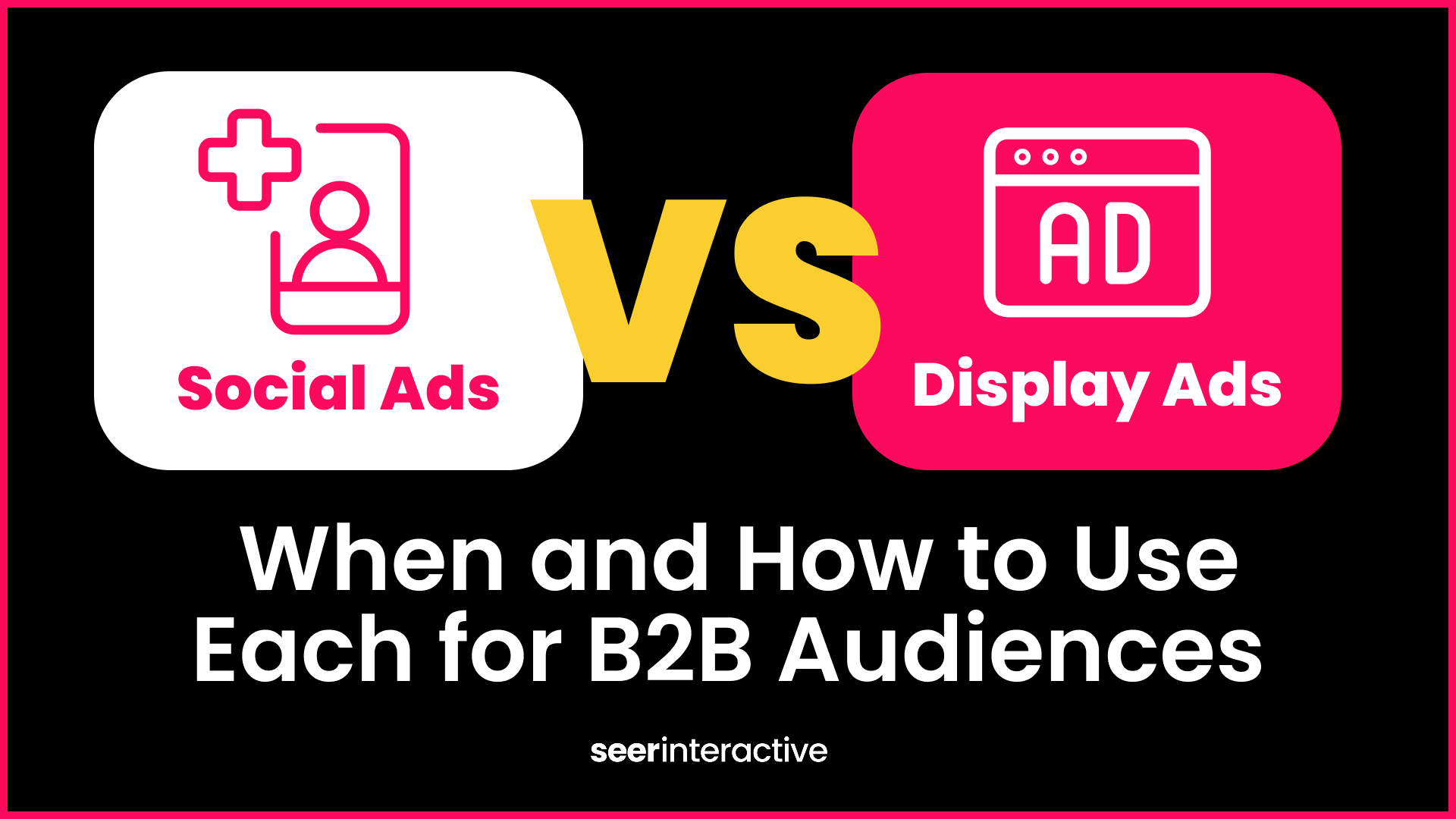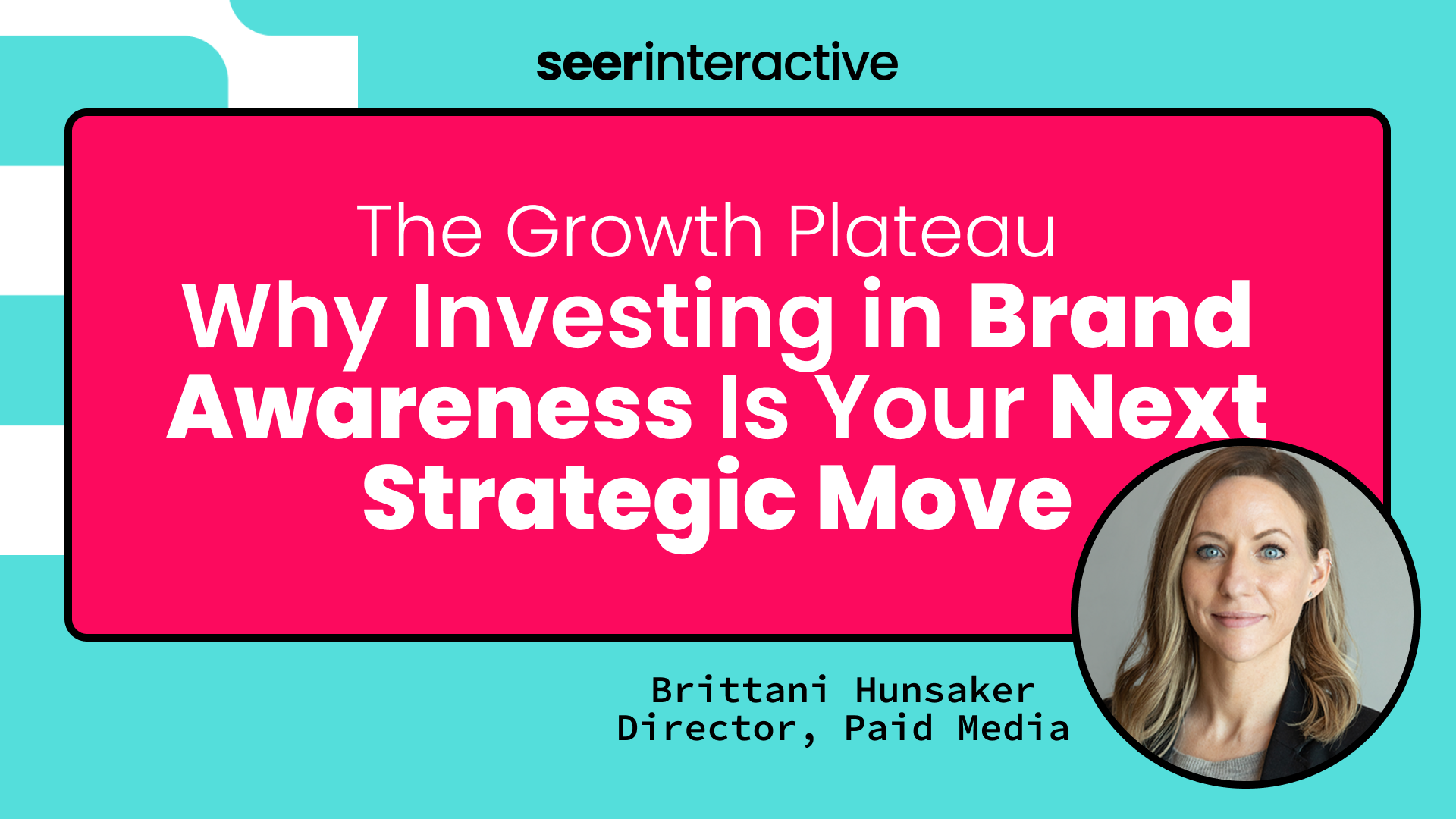Saying that paid search has seen some changes over the past few years? That's putting it mildly.
I’ve been saying this since HeroConf in San Diego last fall: We aren’t just managing keywords anymore. We’re managing the people experience.
In my session, we broke down exactly why it’s time to rethink how we approach campaigns. And how winning lies within putting the audience back at the center of everything we do.
Here’s the recap. Let’s dive in.
Paid Search Has Evolved — And So Should We
Platforms like Google Ads have changed massively. To name a few major changes…
- Smart bidding replaced manual CPC
- Responsive ads replaced dozens of manual text ad builds
- Performance Max removed keywords altogether
- Demand Gen killed manual placements
- AI-driven audience signals took over manual segmentation
Notice a trend?
Automation is here, and our control is shrinking.
Sounds scary… but is that bad? Nope.
Instead of fighting it, we should lean into it.
We can’t control every keyword anymore, but we can control how well we understand and serve our audience what they need, in the moments that count.
The Person Behind the Query Matters More Than Ever
Let's ground ourselves. Google’s goal is simple: Deliver the most relevant, useful information to users at the right time.
The person behind the query is more important than the query itself.
If Google's algorithms are obsessed with serving the right content to the right user, our focus shouldn't just be "how do we show up?"
It should be: "Are we the best thing they could see at that moment?"
That’s where audience-first strategies come in. I’m talking paid, but this is an increasingly important perspective and strategy for every marketing channel.

Here’s the Kicker: Knowing Your Audience Isn’t Enough
Let’s be real:
When I ask brands who their audience is, 9 times out of 10 they say something like, "Decision-makers!"
Cool.
But who else influences that decision?
Enter the User Persona vs Buyer Persona split.
User Persona vs Buyer Persona
Quick story:
My kids were watching an episode of Bluey (parents, you know), and a toy ad came on.
The kids aren’t technically the “buyer” — I am.
But who’s influencing that decision every day in my house? You guessed it.
The advertiser knew exactly who to win over first: the user.
Same thing in B2B and B2C.
If you’re only targeting buyers and ignoring users, you’re missing massive influence points along the journey.
Moral of the story: If you want more customers, you have to win the users' hearts first.

Research Is the Superpower We’re Not Putting into Play
The best weapon you have?
Deep, unapologetic research.
- Interview customers
- Talk to sales teams
- Study how your audience actually behaves across platforms
You need real data behind your personas, not just a dream buyer profile someone made up in a meeting.
Example:
Meet Active Ashley
25–35 years old, lives on Instagram and TikTok, always looking for new fitness ideas. We don't just know where she hangs out—we know her habits, her pain points, and what will actually make her click, engage, and buy.
But here's the thing:
It’s not just about ‘targeting’ Ashley. Your ad copy, your landing pages, your offers… all of it needs to meet her where she is in her journey.
Placement-First Strategies Are the Future
So how do you do that? “Meet her where she is in her journey”? Well, we’re living in a world where Google Display placements sneak into Demand Gen campaigns and AI controls more of the auction, where your ads show up, and how they show up, matters more than ever.
Tip: Test creative by placement. Customize messaging for YouTube vs Gmail vs Discover vs Shorts.
Different platforms = different moods = different strategies.
No more copy/pasting the same creative everywhere.
Personalization Isn’t Optional Anymore
AI is teaching users to expect personalized, conversational experiences. Whether it's Google's AI Overviews, ChatGPT responses, or ad experiences across platforms.
Personalization isn’t a nice-to-get-to now. It’s survival.
How to get there:
- Research your audience deeply
- Build campaigns that reflect their stage in the journey
- Test, learn, iterate relentlessly
Relevance is the name of the game. Not keywords.
If Keyword Targeting Disappeared Tomorrow… What Would You Do?
This brings us back to the genesis of this article: we’re shifting away from Keywords as the strategy. Here’s a hard question: If Google pulled the plug on keyword targeting tomorrow, could your strategy survive?
If you’re feeling a little panic setting in, you’re not alone.
For years, keywords were our crutch:
- Find the right terms
- Write some good ads
- Win the auction
But that is pretty much done. Automation is getting stronger. User behavior is getting more complex to track and target. And queries aren’t the full story anymore.
Future-proof strategies start with a solid understanding your audience at every stage of their journey:
- What they care about
- What problems they’re trying to solve
- How they consume content across different platforms
- What will make them choose you over everything else in their feed
If you nail the audience, the platforms will find the moments. If you only nail the keywords, you’ll lose as the landscape evolves and answers, not search terms, are what matters the most.
This is NOT About Abandoning Search.
It’s about preparing for a future where intent signals matter more than exact-match queries.
Honestly, this is what we should have been doing all along.
We just got distracted with the KPIs and the metrics that made us feel good. That made us look good. We hit the numbers. But did we give the user the right, most relevant answer in the moment? I’m not so sure about that. The marketers who figure this out first are going to crush it while everyone else scrambles.
Ready to learn about how to make the leap? Let's talk.


